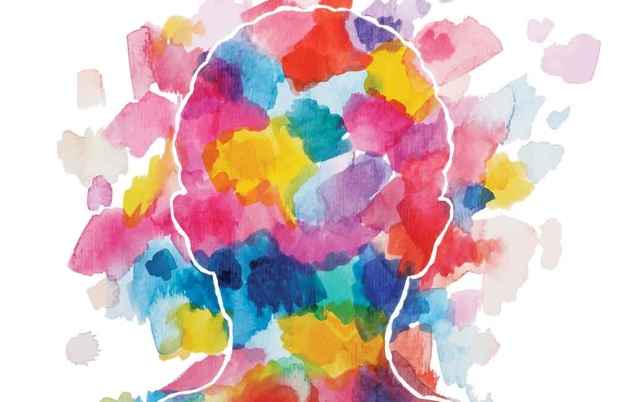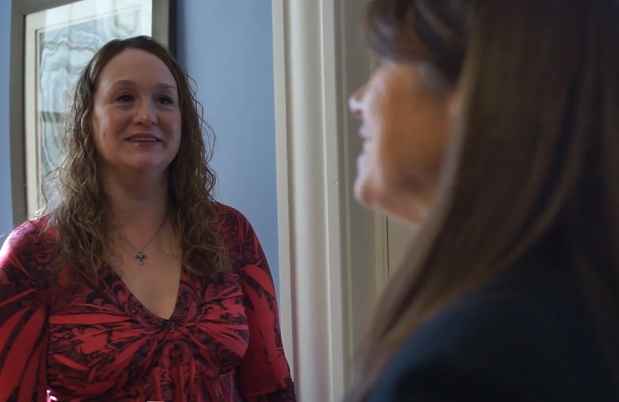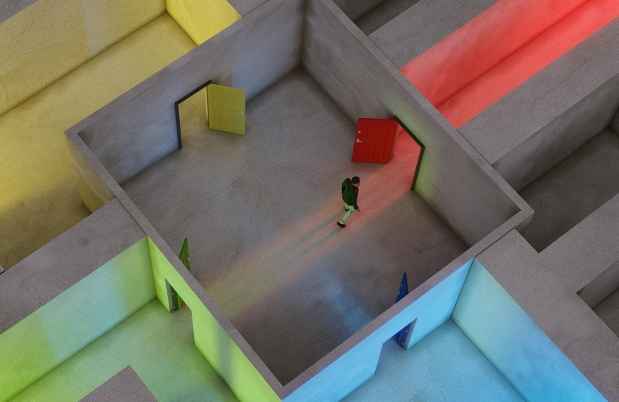OCD Institute
Compassionate OCD care for children and adults. Call us today to talk to our admission staff about treatment options.
Obsessive compulsive disorder (OCD) is a debilitating illness consisting of unwanted thoughts and time-consuming rituals that can significantly limit a person’s ability to function in daily life.
In 1997, we opened our doors as the country’s first residential treatment program for this condition. Since then, the Obsessive Compulsive Disorder Institute (OCDI) has served as a leader in the advancement of clinical care and research for OCD and related disorders in children and adults. Our experts are ready to help you.
Watch Now!
Our programs are ideal for individuals with moderate to severe or treatment-resistant OCD and its most common co-occurring disorders such as major depression and anxiety disorders.
Our adult program is most appropriate for individuals ages 18 and older. Our program for children and adolescents, OCDI Jr., is best suited for ages 12 to 18.
Adult residents’ average length of stay is between 30 and 90 days. At OCDI Jr., most commonly, youth stay for 2 months in residential care. The OCDI is covered by most health insurance providers, but self-pay is possible.
We primarily use two methods to treat OCD. Exposure and response prevention (ERP) therapy allows individuals to gradually face their obsessional cues in order to build confidence with triggers and ultimately inhibit future compulsive responses.
Acceptance and commitment therapy (ACT) promotes a willingness to accept and address, rather than avoid, difficult thoughts and emotions and may reduce barriers to other forms of treatment. These treatment approaches are proven to help individuals struggling with OCD, anxiety, and related disorders.
“It was life-changing being at the OCDI. The staff, along with my parents, changed my life. I have an entirely different perception of my emotions and believe that the classes and groups will vastly reduce the re-occurrence of major depressive episodes.”– Patient treated at the OCDI
Educational services are also available for children and teens to help our young patients keep up with schoolwork during their time at the program.
The OCDI is located on McLean’s historic Belmont campus. The programs offer a pleasant and peaceful environment that is conducive to helping patients focus on their treatment.
Our expert staff specialize in OCD and related mental health disorders and are devoted to improving the quality of life of patients and their families. Our 24-hour care also includes available emergency psychiatric and medical personnel.
Understanding OCD
In this comprehensive guide, learn all about the signs and symptoms of OCD and find hope for treatment and recovery.

Treatment Approach
The Obsessive Compulsive Disorder Institute takes a robust approach to patient care. We use evidence-based models, family-focused therapy, and cutting-edge treatments.
Staff focus on creating a customized treatment plan for each individual based on his or her specific symptoms, the severity of the symptoms, and other coexisting psychiatric diagnoses. We work in close partnership with patients and their families and emphasize patient self-motivation.
Treatment plans regularly include a combination of individual and group therapies, a variety of behavioral therapies, and medication that help patients manage their symptoms and transition back to their daily lives.
Our primary treatment is exposure and response prevention (ERP) therapy—a behavioral therapy that allows patients to engage directly with obsessional cues in a manner that builds confidence and competence with OCD triggers and ultimately leads to inhibition of future fear responses.
In order to customize the best program for each individual to help ensure success, we also incorporate other approaches, tools, and techniques that enhance motivation. These can include elements of dialectical behavior therapy (DBT) and acceptance and commitment therapy (ACT), two behavioral therapies that focus on thoughts and actions.
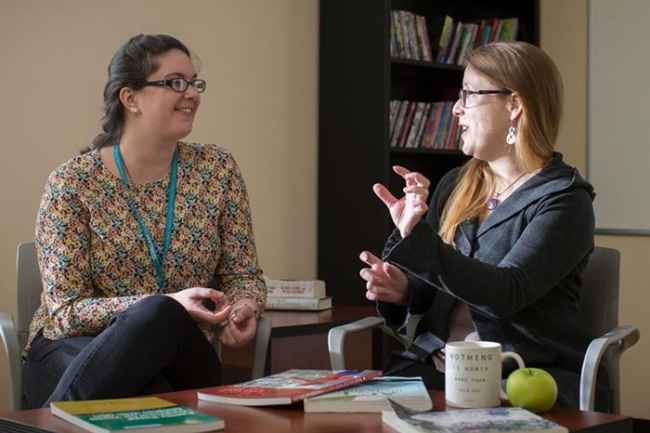
Staff at the OCD Institute are committed to providing compassionate and expert care to individuals with OCD and severe anxiety
Upon admission, each patient receives a diagnostic assessment and completes an array of objective measures. These assessments are administered by our OCDI Office of Clinical Assessment and Research.
We use the information to establish a treatment plan that incorporates the best therapies and strategies for addressing the patient’s symptoms, meeting challenges, and setting goals.
By establishing a critical baseline of symptoms, we can also track progress throughout the duration of treatment and even after patients have returned home. OCD takes many forms. Consistent reevaluation allows us to monitor our patients’ gains.
With permission from the patient, we make use of the data we collect clinically to answer important questions about OCD and how to best treat it.
Having a team devoted entirely to clinical assessment and research is invaluable, as it helps us better serve our patients and continually improve our program while we search for new and innovative ways to treat OCD.
Residents and partial hospital (day program) patients follow the same structured schedule, a combination of group, family, and individual therapy targeted at reducing the severity of the patient’s symptoms and providing the individual with tools to prevent relapse.
The schedule is designed to engage patients in their treatment. Each day is carefully planned with ample time for self-focus and group work and to maintain the important balance between work and leisure.
At the Intersection of Compassion and Innovation
Learn why McLean’s world-class approach to obsessive compulsive disorder treatment is considered a life changer for those with OCD
Each patient works with a behavioral therapist (a licensed psychologist or social worker) several times a week. The therapist develops a plan that serves as a guideline for staff to ensure quality and consistency in treatment. The plan identifies obsessions, compulsions, and avoidance behaviors, provides a menu of exposures for staff to implement, and recommends special instructions for each patient.
Patients meet with a psychiatrist weekly, or more frequently if required, for medication management. The nursing and counseling staff are also certified in medication administration.
In general, group therapy focuses on helping patients become more open and willing to participate in treatment. Groups also include topics like decreasing behavioral symptoms; increasing normalized family, work, and social functioning; and improving access to education and support.
Through group therapy we teach skills in areas where people with OCD typically have deficits, including becoming more fully engaged in treatment by learning mindfulness, scheduling, social skills, and goal setting.
There are also a wide assortment of groups pertaining to specific symptoms that allow patients to learn key interventions for their individual diagnoses.
The specifics of the day’s schedule vary from day to day so that on a weekly basis group therapy covers a wide range of topics including mindfulness, motivation, cognitive behavior therapy, expressive therapies, and more. We also incorporate both didactic and skills-based groups, as well as activity therapies.
Research shows that expressive therapies such as music and art improve clinical and behavioral outcomes, reduce stress and anxiety, and give patients a better sense of well-being.
We offer a holistic balance of yoga and mindfulness as well as music and art therapy classes, run by a team of expressive therapists who specialize in mental health care.
As a component of treatment, we take our residents on community outings, such as outdoor recreation, movie theaters, shopping, and museums to practice newly acquired skills.
The OCDI leads the way in the advancement of clinical care, education, and research to help patients, families, and health care providers understand and more effectively treat OCD.
Through this service, we create a supportive learning environment in which children can continue their studies and earn school credit during their stay.
The priority of family therapy is to provide education about OCD that best supports the patient’s home life. This can mean working to stop accommodating behaviors, which are very common in the families of people with OCD.
Families also learn more helpful responses to a patient’s symptoms in the home environment. This close alliance and education of the family system significantly helps the patient transition back home successfully once treatment is over, and also helps to reduce the likelihood of relapse.
Each patient is assigned to one of the program’s independently licensed family therapists who facilitates weekly family sessions and works with the patient and family to create an aftercare plan.
It is the expectation that incoming adult patients identify at least one person in their life to engage in the treatment, be it a family member or a friend.
Parents and caregivers of OCDI Jr. patients are required to be active partners in treatment.
Therapists meet with parents to help them become coaches in their child’s treatment to assist with applying skills and the transition to home and school environments. Sessions are conducted over the phone with family or significant friends who don’t live in the area.
Toward the end of treatment, parents are invited to come and spend a week at OCDI Jr. to learn needed skills to help their children transition home and maintain the gains they have made.
Partial Hospital Program
The OCDI offers a day (partial hospital) program for individuals who do not require 24-hour care yet need more structure than is available in outpatient treatment.
This level of care is appropriate for patients whose symptoms do not interfere with their ability to travel to the program and who are able to successfully manage their symptoms while at home.
Many of our adult partial hospital patients have completed our residential program and are in need of less intensive treatment.
OCDI Jr. also offers a partial hospital program with three treatment tracks:
- Stand-alone services for families seeking only partial hospital treatment
- Step-down programming for patients who have been in the OCDI Jr. residential program
- Assessment and preparation for transition to residential care
Patients within the partial hospital program attend the same structured schedule and individual and group therapy sessions as residents while spending their evenings at home practicing the skills they have learned during the day.
The emphasis of the day program is to provide a sufficient level of stability for the patient to be able to gradually leave treatment.
The partial hospital program operates daily, Monday through Friday.
Articles, Videos, and More
More About OCD
Research
The OCDI research program aims to improve treatments for OCD and related conditions. Founded in 1997, the program was renamed the Office of Clinical Assessment and Research (OCAR) in 2013.
The OCDI’s treatment program is a rich environment for informing clinical practice. Research is driven by the complex questions and practical issues faced in the daily effort to help patients overcome their OCD.
By design, OCAR includes a diverse staff of clinical researchers. The team examines OCD and its treatments using observation of patient behaviors and self-report data. They combine this with other factors, such as genetics, brain imaging, and biology.

The Office of Clinical Assessment and Research studies OCD to improve current and future patient care
The gold standard for treating OCD is exposure and response prevention (ERP) therapy. OCAR aims to improve the lives of current and future patients by advancing the science and practice of exposure therapy.
OCAR focuses on understanding why ERP works. They help tailor treatment to the individual by examining responses and their underlying processes in the brain and body. The team also evaluates innovative treatments and improvements to them. This includes tools such as acceptance and commitment therapy and computerized cognitive trainings.
In addition, OCAR examines other areas to help improve OCD treatments and outcomes. Current research at the adult program includes studying sleep phases, family accommodations, identity status, and more.
As digital methods advance, OCAR is looking into the benefits of technology interventions and tools. The use of computer tests and data collection through devices like smartphones and fitness trackers may prove invaluable for both research and treatments.
At OCDI Jr., our clinician-researchers are examining family factors that influence treatment outcomes and exploring support systems for parents raising children with OCD.
Though patients at the OCDI may be asked to take part in OCAR research, participation is not required and does not affect access to care.
Learn more about the OCDI’s Office of Clinical Assessment and Research
Admission & Cost
Admission
The OCD Institute is suitable for children, teens, and adults ages 12 and older with moderate to severe or treatment-resistant OCD and its most common coexisting disorders. This includes major depression and anxiety disorders, such as social anxiety, specific phobias, panic attacks, and separation anxiety.
The OCDI is appropriate for those who could benefit from intensive residential or partial hospital (day program) care.
Our program may not be appropriate for individuals who have certain active co-occurring difficulties:
- Eating disorders: Individual must be medically stable and at a stable, healthy weight and
- Substance addictions: Individual must be sober for 3 months; If using alcohol or THC excessively, the individual must refrain prior to admission; drug/alcohol use, including medical marijuana, is not permitted while in program
- Suicidality and self-harm: Individuals are assessed on a case by case basis, but may require a period of stability prior to treatment if they are exhibiting suicidal or self-injuring behaviors
For further information about our program or to make a referral, please contact our admission staff:
Adults
Phone: 617.855.2776
Email: @email
Children and Adolescents
Phone: 617.855.4523
Email: @email
Referral Forms
We evaluate individuals prior to admission to ensure the program is a good fit, which includes meeting a specific set of criteria. Once forms are returned to the program, we can help determine if the OCDI is an appropriate option.
Parents and providers looking for care for children and teens should contact OCDI Jr. using the information provided above.
Prospective adult patients or their families should fill out the OCDI Patient Application. The patient’s treatment provider fills out the OCDI Treatment Provider Referral Form.
Both forms are required before a patient’s potential admission can be assessed.
If you need assistance with the forms or the admission process, please contact the program using the information provided above.
Cost
The OCDI is covered by most insurance providers. Self-pay is also accepted at OCDI Jr.
We understand that navigating the insurance system can be challenging, which is why we assist prospective patients to help determine eligibility. We welcome your questions and concerns and have a dedicated staff to help you.
McLean Hospital accepts Medicare, Massachusetts Medicaid, and many private insurance and managed care plans. More information on insurance providers accepted by McLean Hospital may be found on the Mass General Brigham website. You may also find it beneficial to review McLean’s patient billing and financial assistance information.
Treatment Team
Program Leadership

Diane Davey, RN, MBA, Program Director, OCDI
Ms. Davey has worked in residential and inpatient programs at McLean since 1985. In 1997, she was the co-founder of the OCDI and has since served as program director. She is a member of the Board of Directors of the International OCD Foundation, has given many local and national talks about OCD, and is active in raising awareness about OCD and related disorders.
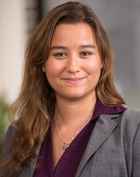
Maria G Fraire, PhD, Program Director, OCDI Jr.
Dr. Fraire specializes in the treatment of severe anxiety, OCD, and co-occurring disorders, specifically utilizing cognitive behavior therapy and exposure and response prevention. Her research interests include advancing the understanding of underlying processes related to anxiety and co-occurring disorders and developing specifically tailored treatments for anxiety and complex coexisting conditions. In addition to her clinical and research duties, Dr. Fraire is involved in program development and staff training.

Brian P. Brennan, MD, MMSc, Medical Director, OCDI
Dr. Brennan is also the associate director of translational neuroscience research in the Biological Psychiatry Laboratory and an associate professor of psychiatry at Harvard Medical School. The primary focus of Dr. Brennan’s research is the identification of novel biological targets for the development of improved therapeutics for OCD and related disorders.
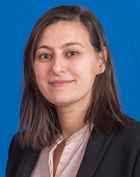
Perihan Esra Guvenek-Cokol, MD, Medical Director, OCDI Jr.
Dr. Guvenek-Cokol is a double board certified child, adolescent, and adult psychiatrist. She specializes in emerging mental illness in teens and young adults. Her expertise is in early stages of psychotic and bipolar disorders, along with anxiety and obsessive compulsive disorders. Dr. Guvenek-Cokol is also the medical director of the Support, Treatment, and Resilience (STAR) Program.
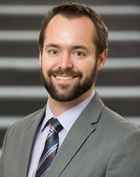
Nathaniel Van Kirk, PhD, Director of Psychological Services, OCDI
Dr. Van Kirk is a licensed clinical psychologist, specializing in severe anxiety disorders, OCD, and trauma/PTSD. His clinical research focuses on the role of motivation across treatment and the impact of trauma on treatment outcomes, and on promoting innovative methods to assess and conceptualize recovery. He is involved in efforts to reduce mental health stigma, emphasizing bridging the gap between therapists, researchers, and those with mental health challenges.

Alyssa L. Faro, PhD, Director of Clinical Services, OCDI Jr.
Dr. Faro is a licensed clinical psychologist. She specializes in evidence-based treatments, such as acceptance and commitment therapy (ACT), cognitive behavior therapy (CBT), and exposure and response prevention (ERP) therapy, for anxiety disorders, depression, and obsessive compulsive disorder across the life span. In her role at OCDI Jr., she oversees clinical training, programming, admissions, and supervision.
Staff and Associates
Working in close partnership with patients and families, our clinicians create and provide tailored treatment plans and high-quality care that meets each patient’s needs. Our expert clinical team includes board-certified psychiatrists, licensed psychologists and family therapists, registered nurses, certified teachers, and expressive therapists.
Our clinicians have experience working with patients from diverse cultural and socioeconomic backgrounds from across the country and around the world.
Our staff members are trained in assessing and treating complex OCD and related conditions through exposure and response prevention (ERP) therapy and acceptance and commitment therapy (ACT).
All counselors receive specific training in working with patients who live with OCD and other anxiety disorders. They are also trained in general crisis prevention/intervention, CPR, and group leadership skills. Our team of well-trained and compassionate clinicians foster an environment to help our patients to succeed.
The OCDI operates within the Division of Depression and Anxiety Disorders, led by Chief Scientific Officer Kerry J. Ressler, MD, PhD. OCDI Jr. is also supported by the Simches Division of Child and Adolescent Psychiatry, led by Daniel P. Dickstein, MD, FAAP.
Accommodations
The adult residential and day program is located in East House, one of several historic buildings on McLean’s Belmont campus. The program offers a pleasant and peaceful environment that helps patients focus on their treatment.
For our residential patients, accommodations and amenities are designed to provide a home-like environment. This allows patients the chance to work on real-life challenges.
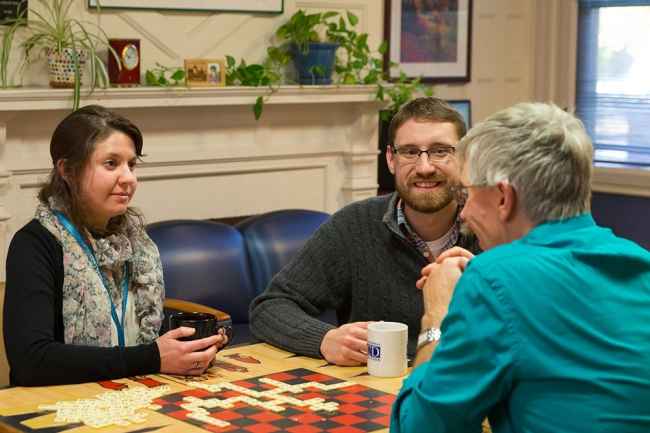
The programs are located on and near McLean’s historic Belmont campus
Our facilities offer comfortable bedrooms, a fully-equipped kitchen, common areas for groups, a laundry area, and access to a fitness facility with state-of-the-art equipment and certified staff.
OCDI Jr. is also located at East House. At our dorm-like facility, we provide cutting-edge treatment delivered in a sensitive and nurturing manner. Amenities include wireless internet access, fitness and recreation, and comfortable, light-filled rooms.
Frequently Asked Questions
Where is the OCD Institute located?
The OCDI is located on McLean’s Belmont campus, in East House. For more information on directions, parking, and local accommodations, please visit our Maps & Directions page.
Who benefits most from the OCD Institute?
The OCDI focuses on treating adults and children who have not had adequate access to proper treatments for OCD and other severe anxiety disorders or who have tried outpatient treatment for OCD but found that they need more intensive treatment.
The program is ideal for individuals who are willing and motivated for treatment and are able to engage in a rigorous treatment program.
Is family involved in treatment?
Family and/or other supports are expected to be actively involved in treatment via weekly meetings and/or conference calls with our licensed family therapists. This allows families the chance to learn about OCD and how to best support their loved ones.
In addition, OCDI Jr. educates and coaches families to continue the work as the child transitions out of the program.
Is smoking permitted?
For adult residents, smoking is allowed in designated outdoor areas only. No smoking is allowed inside any of our buildings. OCDI Jr. is a smoke-free program and medical marijuana is not allowed.
When are visiting hours?
Visitors are permitted, following program policies. Visiting hours are 2-8pm, seven days a week.
Please speak to the patient’s treatment team for more information. Additional details can be found on the Visitors page.
Are cell phones allowed?
Adult patients are allowed to have cell phones as long as they abide by program cell phone policies, including guidelines to prevent disruption of the program and other patients.
At OCDI Jr., tablets owned by McLean are available during admission as a means of video communication with family and to facilitate exposure treatment. Personal cell phones and tablets are not permitted while in the program. Portable music players (e.g., iPods) with no other functionality may be permitted.
Are academics offered?
While the emphasis of programming at OCDI Jr. is on patient care, there is time built in to the treatment day to continue working on academics through homework provided by the individual’s own school.
Is aftercare planning a part of the program?
The treatment team works closely with the individual as well as with family, significant friends, and outside providers to develop a personalized aftercare plan. Recommendations by staff are made based upon clinical needs, progress made during treatment, and long-term treatment goals.
Can former patients access their medical records?
All requests for medical records should be directed to McLean’s Health Information Management Department.
Are support groups offered?
To complement our programs’ services and encourage individuals’ initiatives in their own treatment course, many self-help groups are hosted by McLean.
Is research conducted?
Since the Obsessive Compulsive Disorder Institute (OCDI) opened its doors in 1997, research has played an integral role in helping to develop innovative treatment approaches to OCD. With permission, patients and families may be asked to participate in clinical research conducted by the OCDI Office of Clinical Assessment and Research.
Does McLean gather patient feedback?
McLean is dedicated to maintaining high-quality and effective patient care. To ensure that those standards remain at the highest level, we use a number of feedback instruments and quality indicators.
Among these tools are the Perceptions of Care survey which monitors patient satisfaction and BASIS-24™, a psychiatric outcomes measurement tool created at McLean and widely used in the U.S. and around the world, which delivers feedback on the patient care experience.
McLean Is Here to Help
Let us help you find the OCD care that’s right for you or your loved one. Call us today to talk to our admission staff:
617.855.2776 (Adults) or 617.855.4523 (Children)

